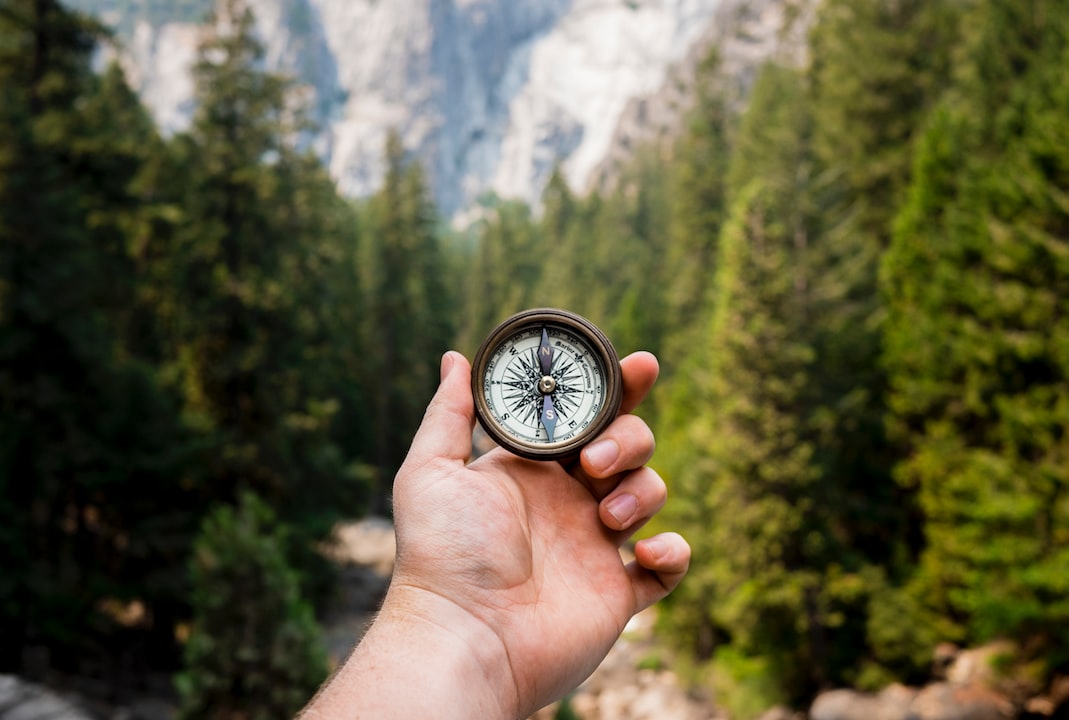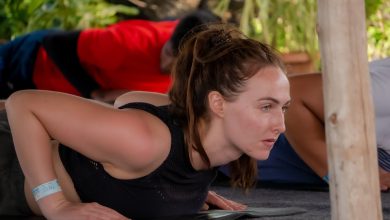
We start finding our Purpose with a narrative: One day, when his brother was eighteen, he strolled through his living room and proudly announced to his mother and me that he would one day become a senator. My mom probably gave him the “That’s nice, dear” treatment, but I was distracted by a bowl of Cheerios or something, she’s pretty sure. But during his fifteen years, that purpose influenced every decision in his brother’s life. It affected what we studied in school, where we lived, who we interacted with, and even what we did on our vacations and weekends.
After working for about half a year, he became the leadFFer of a major political party and a judge. He also ran for state legislature in his thirties and lost by a narrow margin. Don’t get me wrong. My brother is weird. There is no such thing.
Most of us don’t know what we want in life. Even after school. Even after getting a job. Even after making money. Between the ages of 18 and 25, I changed career dreams more often than I changed underwear, and even after I started my business, I had a clear definition of what I wanted out of my life. It took him another four years to do. Chances are you’re like me and don’t know what you want. It’s a struggle that almost all adults go through. “What do you want to do with your life?” “What are you passionate about?” “Do you dislike it?”
Finding Purpose: The Problem of Finding the Purpose of Life
Part of the problem is the concept of “life’s purpose” itself, the idea that we are all born for a higher purpose and that it is our cosmic mission to find it. This is the same silly logic used to justify ghost crystals and lucky numbers being 34 (but only on Tuesdays or full moons). This is the truth. We will exist indefinitely on this earth. During this time, we get things done. Some of these are important. Some of them are not important. And these essential things give meaning and happiness to our lives. The unimportant stuff kills time.
So when people say, “What am I supposed to do with my life?” or “What is my purpose in life?” What they are asking is: “What are you going to do with your precious time?”. This is a much better question to ask. It’s much more convenient and doesn’t carry all the ridiculous baggage of the “purpose of life” question. You should understand what you feel is essential to you.
One of the most common email questions I receive is what I want to do with my life or what is my “life purpose.” I cannot answer this question. as far as I can tell, this guy is into knitting sweaters for his kittens. He can’t come up with anything. Who am I to say to them what is proper and essential? But after doing some research, I put together a series of questions to help you discover for yourself what is important to you and what can bring more meaning to your life. I made it. These questions are by no means exhaustive or definitive. They are a little silly. But finding meaning in our lives should be fun and exciting, not a chore, so I created them this way.
Whether you’re looking for your dream job, considering starting a different career, or don’t want to spend your life thinking, “what if…”. It would help if you discovered these weird subjects.
Finding Purpose: What’s your favorite flavor of shit sandwich? Do you have olives?
What kind of sandwich would you like to eat? After all, we are all provided with one.
Mark Manson
Yes. This a very important question. What flavor of shit sandwich would you like? Here are some sticky little truths about the life you won’t be told at your high school pep talk. That probably sounds incredibly pessimistic. You might think, “Hey, Mr. Manson, turn that frown upside down,” but I think that’s a liberating thought.
Everything comes at a cost. Everything has some cost. Nothing is always fun or uplifting. The question is, what struggles and sacrifices are acceptable? Ultimately determining your ability to stick to what’s important is your ability to handle difficult situations and survive the inevitable lazy days.
You want to be a great tech entrepreneur but won’t succeed if you can’t afford to fail. If you want to be a professional artist but aren’t prepared to have your work rejected hundreds, if not thousands of times, you’re done before you even start. I have bad news for you if you want to be a successful barrister but can’t handle an 80-hour work week. What unpleasant experiences can you handle? Can you stay up all night? Can you put off having a family for ten years? Can you make people laugh off the stage repeatedly until you get it right?
What kind of sandwich do you want? Because we will all be served at some point.
And your favorite crappy sandwich is your competitive edge. By definition, most people don’t want to do (the things they want to do) give you a big advantage. So find your favorite crappy sandwich. And you might choose one with olives. Answers to this question indicate the following: What difficulties are you willing to overcome to get what you want?
Finding Purpose: What’s the truth about you today that makes your 8-year-old self cry?
Something about the social pressures of adolescence or the professional pressures of young adulthood push passion out of us. We’re taught that the only reason to do something is if it pays off somehow. And the transactional nature of the world inevitably stifles us, leaving us lost or stuck.
Mark Manson
I have been writing stories since I was a child. I would sit alone in my room for hours, writing about aliens, superheroes, great warriors, friends, and family. Not because I wanted someone to read it. It wasn’t because I wanted to impress my parents or teachers. But for the sheer pleasure of it. And for some reason, I stopped. And I don’t remember why.

We all tend to lose touch with the things we love as children. Something about the social pressures of adolescence or the professional pressures of young adulthood push passion out of us. We’re taught that the only reason to do something is if it pays off somehow. And the transactional nature of the world inevitably chokes us, leaving us lost or stuck. It wasn’t until my mid-twenties that I rediscovered how much I loved writing. And I never remembered how much I enjoyed building websites until I started my business.
But the funny thing is that when my 8-year-old self asks my 20-year-old self, “Are you not writing anymore?” or “Because no one reads what I write” or “Because you can’t make money from it,” not only am I completely wrong, the 8-year-old version of me probably would have started crying. This 8-year-old boy didn’t care about Google traffic, social media virality, or book progress. He just wanted to play. And that’s where the passion always begins. Because it’s a pleasure to play, answers to this question indicate the following:
- Childhood passions lost until adulthood
- Activities that you revisit just for fun
Finding Purpose: What makes you forget to eat and poop?
Notice the activities that keep you up all night. But pay attention to the cognitive principles behind the activities that keep you occupied because it can easily be used elsewhere.
Mark Manson
We’ve all had the experience of being so engrossed in something that minutes turned into hours and hours of ‘Oh my God, I forgot to eat dinner. It is said that Isaac Newton’s mother spent days immersed in her work and forgetting about it, so she had to come regularly to be reminded of meals in her prime.
I used to be in a video game. Maybe that wasn’t good. It’s been a problem for years. Instead of doing more important things like studying for exams, taking regular showers, or talking face-to-face with other people, I was sitting and playing video games.
It wasn’t until I quit gaming that I realized that my passion wasn’t the game itself (even though I love them). My passion is an improvement, being good at something, and trying to improve. The game itself – graphics, story – was cool, but I can live without them. Where I succeed is by competing with others and myself.
And when I applied this obsession with self-improvement and competition to my own business and writing, it worked. Maybe it’s something different for you. It could be organizing things efficiently, getting lost in a fantasy world, teaching someone something, or solving a technical problem. Whatever it is, don’t just focus on the activity that keeps you awake all night; concentrate on the cognitive principles behind the movement that excites you because it can easily be used elsewhere. answers to this question indicate the following:
- What you enjoy
- What other activities might you try and enjoy?
Finding Purpose: How can I get a better loan?
Embrace your embarrassment. Feeling silly is part of the journey to achieving something important, and meaningful. The more frightened you are about important life decisions, the more decisions you have to make.
Mark Manson
Before you can be good at something and do anything meaningful, you must first fail at something and lose track of what you are doing. It’s clear. And to get sick of something and not know what you’re doing, you must be embarrassed in some way or form, often repeatedly. And most people try to avoid it because it’s embarrassing.
So the transitive nature of great things ensures that you will never feel important if you avoid anything that might embarrass you. Yes, again, vulnerabilities matter. There are things you want to do, think about, and fantasize about doing, but you are not doing them. You have your reasons. And you repeat these reasons to yourself endlessly.
But what are those reasons? Now, I can say that if the cause is based on someone else’s idea, you’re fooling yourself. If your reason is “I can’t start a business because spending time with my kids is more important to me,” or “Playing Starcraft all day would probably interfere with my music, and music is more important to me,” If it’s something like that. Sounds good. But if your reasons are “My parents will hate me,” “My friends will make fun of me,” or “I’ll make fun of you if I fail,” then you may be avoiding what you care about. There is. Because this scares you to death, not what your mom thinks or Timmy next door says.
Great things are inherently unique and unconventional. Therefore, to achieve them, we must act against the herd mentality. And I’m afraid to do it. Embrace your embarrassment. Feeling silly is part of the journey to achieving something important and meaningful. The more frightened you are about important life decisions, the more decisions you have to make. The answer to this question indicates that:
- Stop making lame excuses and start doing something.
Finding Purpose: How would you like to save the world?
The world’s problems cannot be solved by one person. But you can contribute and make a difference. And the feeling that you’re making a difference is ultimately what matters most to your well-being and fulfillment.
Mark Manson
The world is in trouble for those who haven’t been following the news lately. And by “some problems,” I mean “everything is the worst, and we’re all going to die.” As I have pointed out before, and research backs it up, we must hold on to greater values than our pleasure and satisfaction to live a happy and healthy life.
Pick a problem and start saving the world. There are many options. Our messed up education system, economic development, domestic violence, mental health care, and government corruption. I just saw an article about sex trafficking in America this morning, and it pissed me off. I wished something could have been done…it also ruined my breakfast. Find the problem you care about and start solving it. No one can solve the world’s problems alone. But you can contribute and make a difference. And the feeling that you’re making a difference is ultimately what matters most to your well-being and fulfillment…and what matters is purpose. I know what you’re thinking “Oh my god, I’m reading all this horrible stuff, and it pisses me off too, but it doesn’t lead to action, let alone a new career path.” The answer to this question indicates that:
- What issues are of a more significant concern than you?
- How to make a difference
Finding Purpose: If I had to leave the house every day, Where are you going, and what are you doing?
Discovering what you’re passionate about in life and what’s important to you is a full-contact sport and a process of trial and error. You can’t know precisely what you’re thinking about an activity until you do it.
Mark Manson
For many of us, the enemy is old-fashioned complacency. We go into everyday life. Distract. Sofas are comfortable. Doritos are cheesy. And nothing new happens. That’s a problem. Most people don’t understand that passion is the result of the action, not the cause. Discovering what you’re passionate about in life and what’s important to you is a full-contact sport and a process of trial and error. You can’t know precisely what you’re thinking about an activity until you do it.
So, how would you keep yourself busy if someone put a gun to your head and forced you to leave the house every day for everything but sleep? Sit in a coffee shop, and Facebook cannot be viewed. You probably already do. There are no useless websites, video games, or TVs. Let’s go back to the 90s, when Facebook, Instagram, and all the social media clusters most of us spend half our lives in hadn’t been invented yet. You must be out of the house every day and actively doing something until bedtime. Where are you going, and what are you doing?
Sign up for a dance class? Join a book club? Do you want another degree? Invent a new irrigation system that could save the lives of thousands of children in rural Africa. Learn to hang a glider? What do you do all that time? Which activity do you prefer over all other activities? There are only 24 hours in a day. This brings us back to a fundamental question we should ask ourselves. “What are you going to do with your precious time?”
If you like it, write down some answers, then go out and do it. Answers to this question indicate the following:
- What I’ve always been passionate about
- How you use your time
Finding Purpose: If you knew you would die in a year, what would you do, and how would you like to be remembered?
After all, death is the only thing that allows us to understand the value of our life because the most important thing about your existence can only be understood by imagining yourself not existing.
Mark Manson
Most of us don’t like to think about death. It drives us crazy. But thinking about your death has a surprising number of practical benefits. One of these benefits is that it forces you to focus only on what’s essential in your life and on the trivialities and distractions.
When I was a university student, I often asked people around me, “If you had only one year to live, what would you like to do?” Many gave vague and bland answers. A few drinks almost spat on me. However, people started to think about their lives in a completely different way and reassess their priorities.
After all, death is the only thing that allows us to understand the value of our life. Because the most important thing about your existence can only be understood by imagining yourself not existing, what will your legacy be? What stories will people tell when you’re gone? What does your obituary tell you? Do you have anything to say at all? If no, what do you mean? How can we work towards that today?
Again, fail again if you’re delusional that your obituary says something awful to impress other random people. When you feel disoriented, and without purpose in life, you don’t know what’s important to you or your values. And if you don’t know your values, you’re adopting other people’s values and living according to their priorities instead of your own. This is a one-way ticket to unhealthy relationships and eventual misery.
In essence, discovering your “purpose” in life boils down to finding something bigger than yourself and those around you: a value or two that sets your priorities and guides your actions. It’s not about accomplishing great things; it’s about how to spend your limited time meaningfully. To do that, we need to get off the couch and take action, take the time to think beyond ourselves, think more significantly than ourselves, and, paradoxically, imagine a world without ourselves. The answer to this question indicates that:
- What is most important to you?
- What values should guide your actions?
After reading this article, we hope you have reached your desired results; we suggest you read the “Why Humans Need to Be Significant!” article.







